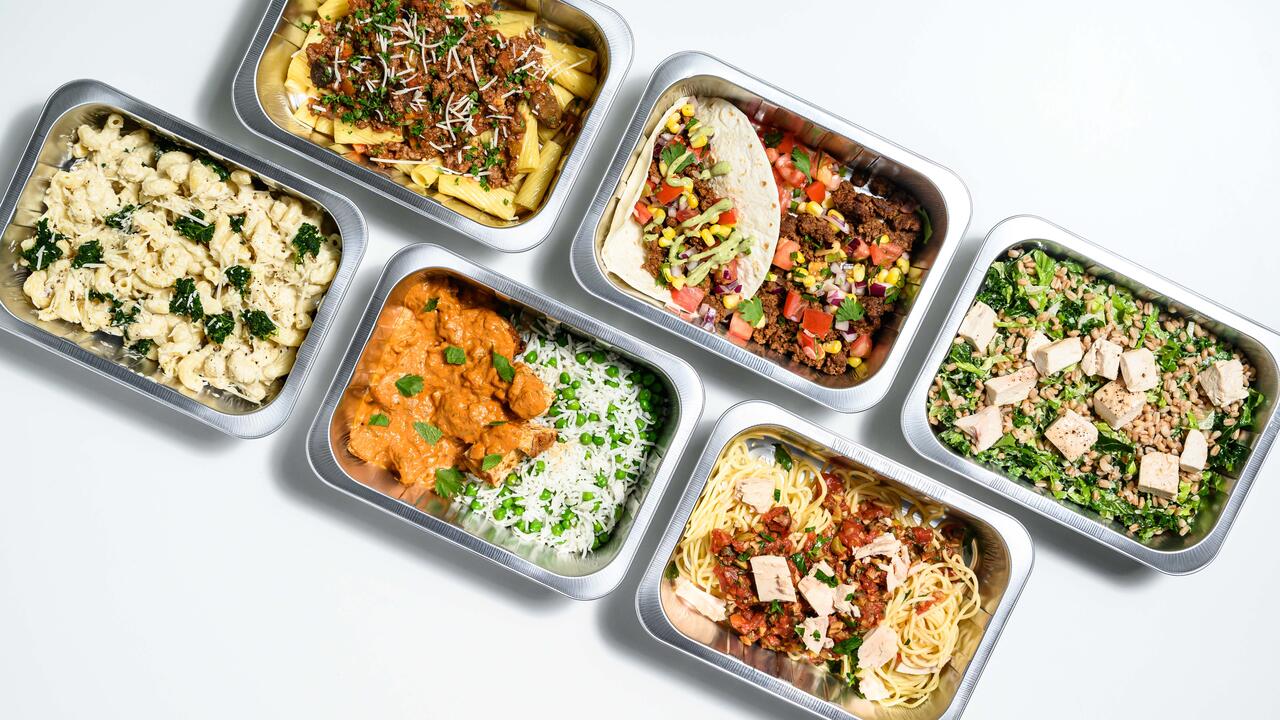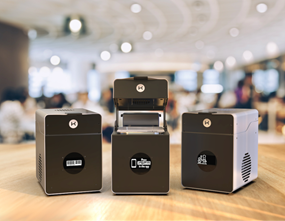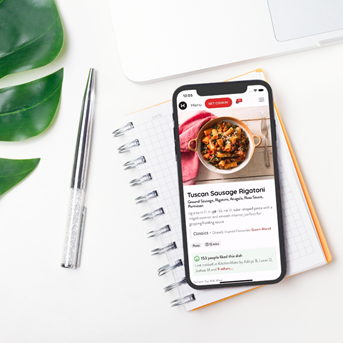
Lunch bag letdown no more
Grad's automated restaurant for the workplace enhances office safety

Grad's automated restaurant for the workplace enhances office safety
By Angela Pause Faculty of EngineeringWith the arrival of COVID-19 vaccines, organizations everywhere are preparing for the return of cautious and, understandably, concerned office workers.
As social distancing continues for months to come, finding ways to support in-office workers is at the top of every C-suite’s list.
Serial entrepreneur and self-described foodie Aditya Bali (BASc ’11, mechatronics engineering) is betting his latest venture, KitchenMate, an automated  restaurant for the workplace, will be an integral part of the new safety culture while bringing epicurean joy to employees.
restaurant for the workplace, will be an integral part of the new safety culture while bringing epicurean joy to employees.
Aditya Bali is co-founder of KitchenMate
After all, delicious, healthy food has always been a staple of perking up people’s spirits and increasing wellbeing, says Bali, COO of the five-year-old company.
“KitchenMate is bringing fresh, individually cooked meals designed by Michelin-star trained chefs in a 24-hour, fully automated, low-touch system to your office kitchen or cafeteria,” he says.
KitchenMate’s unique service includes a self-serve Smart Fridge kiosk that holds up to 70 fresh meals in individually packaged containers. The food is precisely steam-cooked in an Internet-connected Smart Cooker to create a restaurant-quality meal in under 10 minutes.
The ease of use, combined with a wide range of meal options, means employees can minimize their travel in and out of the office while enjoying delicious and nutritious meals safely, Bali says.
What ratchets KitchenMate to the next level of safety and convenience is the mobile app serving as the “remote control” for both the proprietary Smart Fridge and Smart Cooker.
Using the app, employees can see what dishes are available in the fridge and view detailed ingredient information, complete nutrition facts and reviews  from other colleagues. It also warns of allergies and intolerances based on indicated preferences.
from other colleagues. It also warns of allergies and intolerances based on indicated preferences.
KitchenMate's Smart Fridge and Smart Cooker
Employees can select food from the Smart Fridge whenever they want (second breakfast anyone?) and are billed automatically through the app for the meal, which averages around $10 or lower when subsidized by employers.
With 50+ different dishes and new ones added every few weeks, Bali says there is a fresh selection for just about anyone’s preference.
KitchenMate found enthusiastic customers of all types in Toronto and surrounding area even before COVID-19 made intermingling in office kitchens and cafeterias problematic. The 24-hour self-serve technology has leveled up the “eating at work” experience to equal that of having a private chef catering to your dietary preferences, Bali says.
So say farewell to frozen dinners or office fridges filled with random lunches of various ages and uncertain providence.
For Bali, KitchenMate’s fully automated kiosk system has roots in his first company BufferBox launched in 2010 and acquired two years later by Google.
During those startup years, Bali and his current partners who were also working at startups found themselves continually eating high-fat, fast food that was wreaking havoc on their health. He wishes KitchenMate existed back then noting that not all tech startups or many of his co-op work terms come with fresh food options on-site – a gentle poke at the tech world known for keeping employees well-fed.

KitchenMate's personalized app works as a remote control.
KitchenMate aims to provide this level of delicious convenience to more than just tech companies. The company is looking at bringing its technology into places from factories to universities and anywhere that people need to eat while at work.
“While we’re all for take-out at home to support our local restaurants we also need to provide better options in the workplace to support the wellbeing of our employees and to foster a strong workplace culture in these times,” Bali says.
Even more good news?
With the return of people to work and schools, there is a very real possibility that Waterloo Engineering students may in the future see a KitchenMate in their two much-beloved C&Ds.

Read more
How Doug Kavanagh’s software engineering degree laid the foundation for a thriving career in patient care

Read more
Upside Robotics secures new funding to accelerate the future of sustainable farming

Read more
Redefining capstone learning by bringing students, faculty and community partners together to tackle real-world challenges
The University of Waterloo acknowledges that much of our work takes place on the traditional territory of the Neutral, Anishinaabeg, and Haudenosaunee peoples. Our main campus is situated on the Haldimand Tract, the land granted to the Six Nations that includes six miles on each side of the Grand River. Our active work toward reconciliation takes place across our campuses through research, learning, teaching, and community building, and is co-ordinated within the Office of Indigenous Relations.